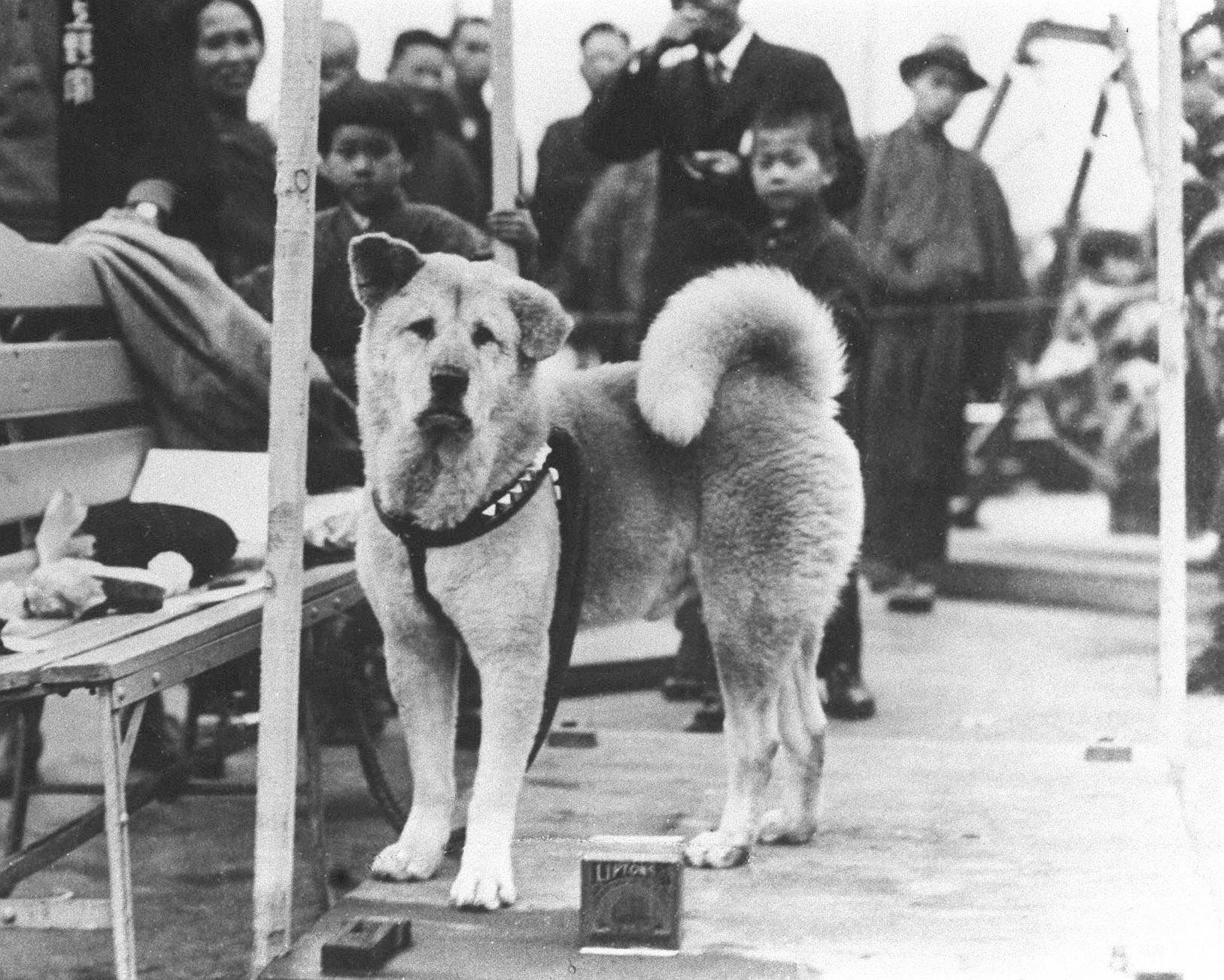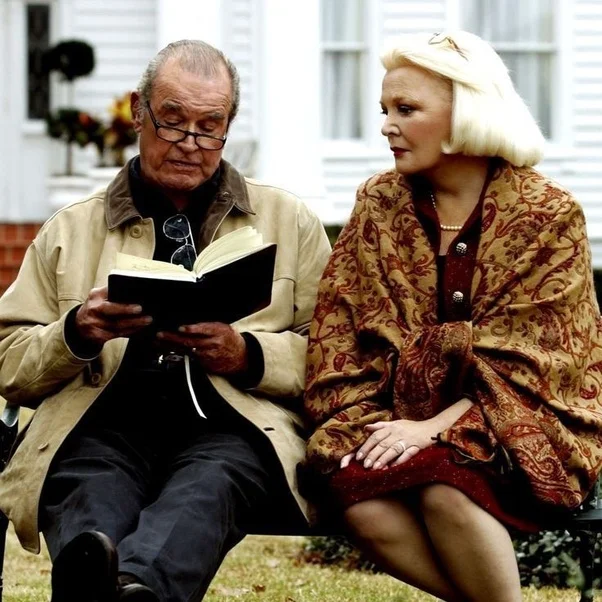What are Some Movies that Show the Depth of Human Feelings and Emotions?
Have you ever walked out of a movie feeling like you’ve experienced a whole new life? Movies that tap into the deepest wells of human emotion have the power to transport us, to make us laugh until our sides ache and cry until our hearts are raw. They remind us of what it means to be truly alive, to love fiercely, to lose painfully, and to dream impossibly. So, buckle up, cinephiles! We’re about to embark on a journey through a captivating collection of films that will leave you breathless, heartbroken, and forever changed.
The Notebook/2004
In the fading embers of her mind, Noah rekindles their love story. Each page, is a whisper of a passionate past, a testament to a love that transcends time and memory. Though her grasp weakens, his love remains, a constant echo in the labyrinth of her thoughts. He is her anchor, her lighthouse in the storm, reminding her that even when forever fades, their love will forever burn.
Demolition
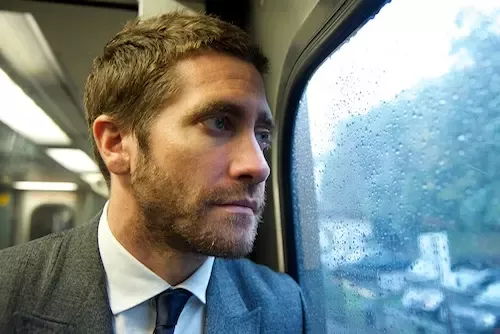
The silence after the applause is deafening. Everyone expects the tears, the wailing, the outward signs of a shattered heart. Yet, you stand there, a hollow echo in a world that throbs with expected grief. The person you loved is gone, but the crushing weight of sadness feels strangely absent, replaced by a chilling emptiness. Is this numbness a betrayal of their memory? A sign of indifference? You search for the familiar pang of sorrow, but only find a desolate landscape within. Perhaps it’s a truth we dare not whisper, this quiet grief, this unsettling absence of storm after the earthquake. But in the hushed corners of your soul, a flicker of understanding ignites. This, too, is the messy tapestry of loss, a thread woven with confusion and the unnerving quietude of a love that echoes in the deepest chambers of your being.
The Bridges of Madison County (1995).
Beneath the stoic facade of a seasoned photographer, Robert harbored a yearning for connection. Drawn to the weathered beauty of Madison County’s bridges, he found himself unexpectedly adrift in the emotional currents of Francesca’s life. Her spirit, caged by a loveless marriage, bloomed under the warmth of his presence. Their four days were a whirlwind of stolen moments, a symphony of unspoken desires.
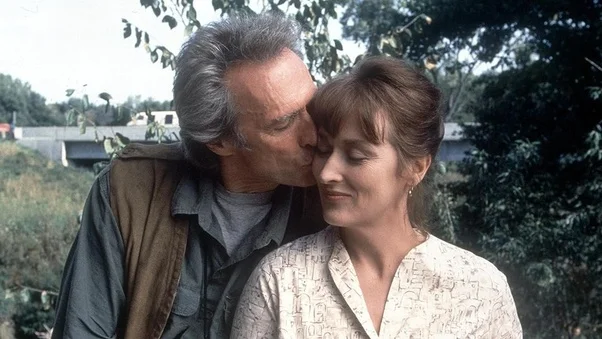
Francesca, a woman sculpted by duty, wrestled with the storm raging within. Robert was a revelation, a taste of a life she never dared to dream. Yet, the weight of responsibility, the invisible threads binding her to her family, held her tethered to the shore.
Years passed, the embers of their encounter fading into a bittersweet memory. Then, a whisper from the past, a chilling echo in the form of Robert’s passing. The news struck Francesca like a rogue wave, stirring the depths of her long-suppressed emotions.
In a final act of defiance, a testament to a love that defied time and circumstance, Francesca chose her forever. Not beside the dutiful husband, but scattered amidst the windswept arches of Roseman Bridge, forever entwined with the man who awakened her soul.
Schindler’s List
In the year 1939, amidst the storm clouds of war, a most unlikely hero emerged. Oskar Schindler, a man driven by ambition and opportunism, found himself in Krakow, Poland. As the iron fist of Nazi occupation clenched around the city, Schindler, a member of the very regime orchestrating the horrors, witnessed the systematic dehumanization of the Jewish population.
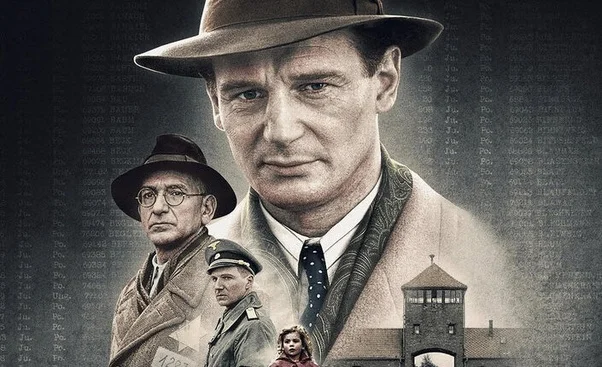
Schindler’s List is not merely a chronicle of war; it’s a descent into the abyss of man’s capacity for cruelty, illuminated by the flickering candle of a single conscience. We bear witness to the methodical machinery of genocide, the Warsaw Ghetto transformed into a cage, and the cattle cars that delivered their human cargo to a fate too terrible to contemplate.
Yet, Schindler, amidst the pervasive darkness, becomes a flicker of hope. He recognizes the humanity in the faces condemned, the richness of lives threatened with extinction. Schindler’s factory becomes an ark, a fragile sanctuary where Jews find not just labor, but a chance to cheat death’s cruel hand. This is a story not only of monstrosity but of the extraordinary courage required to defy it, a testament to the Schindlers who choose compassion in the face of barbarity.
Up in Air
Imagine a protagonist adrift in a sea of solitude. No allies, no adversaries, just the relentless hum of their inner monologue. Sure, it sounds like a recipe for cinematic snooze-ville. But what if that isolation is the conflict itself?
“Up in the Air” navigates this unconventional territory. Ryan Bingham, our protagonist, thrives on his solitary existence. Airports are his stomping grounds, hotel rooms his sanctuaries. But beneath the veneer of contentment lurks a hollowness, a yearning for connection that clashes with his carefully constructed life.
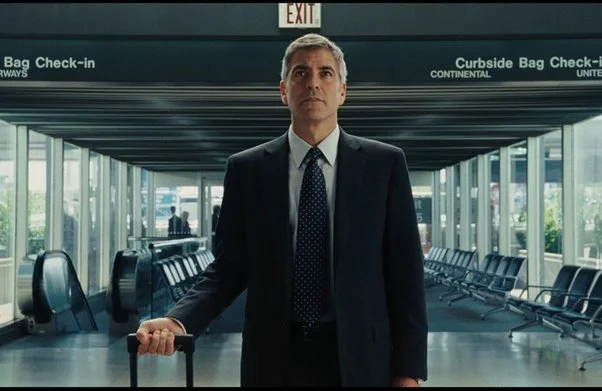
The film’s brilliance lies in how it weaves external forces into this internal struggle. A young, ambitious colleague disrupts Ryan’s routine, forcing him to confront the limitations of his chosen path. A potential love interest throws his carefully guarded emotions into disarray. These encounters aren’t battles in the traditional sense; they’re mirrors reflecting the cracks in Ryan’s carefully constructed world.
“Up in the Air” proves that conflict can be more than a clash of wills. It can be the quiet tug-of-war between who we are and who we choose to be, a battle fought in the solitude of our hearts. It’s a testament to the film’s power that it can make us care about a man’s struggle against the deafening silence of his existence.
Reign Over Me
Alex grapples with a gnawing emptiness in the gilded cage of his seemingly perfect life. Success and material possessions fail to satiate the hollowness within. A chance encounter with Charlie, a college friend long lost to time, throws his carefully constructed world into disarray.
Charlie, a mere shadow of his former self, bears the invisible scars of a tragedy so profound it has shattered his spirit. Alex, initially drawn to the promise of reigniting an old friendship, soon finds himself on a poignant journey of rediscovery.
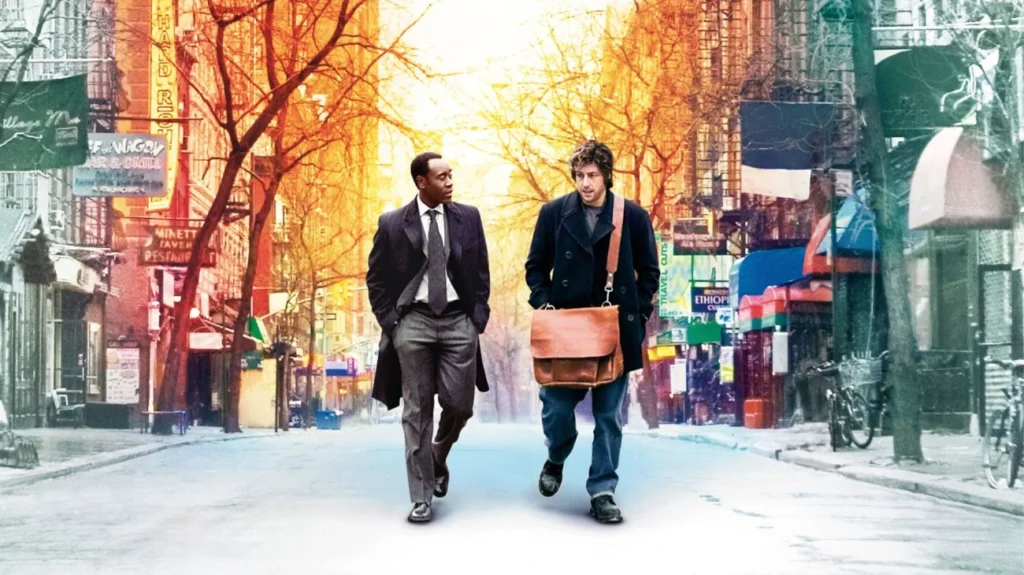
As their bond deepens, Alex confronts the uncomfortable truth reflected in Charlie’s brokenness. He begins to question the shallowness of his existence, the hollowness that success cannot mask. Their conversations, poignant and raw, peel back layers of denial, forcing both men to confront their vulnerabilities.
This is not a story of grand gestures or dramatic confrontations. It’s a tapestry woven from quiet moments of shared pain, hesitant steps toward understanding, and the fumbling attempts of two souls to mend the fractures in their lives. And then comes that moment. A culmination of unspoken emotions, a shared vulnerability that transcends words. It’s a scene etched in memory, a testament to the transform ative power of human connection, of finding solace in the depths of another’s pain.
This film is a revelation. It shatters the mold of Adam Sandler, showcasing a depth of emotional resonance that awakens audiences. His portrayal of a man grappling with grief and the complexities of human connection is nothing short of masterful.
Prepare to walk away shaken, forever changed by the power of this story. It’s a film that lingers, a testament to the enduring strength of the human spirit, even in the face of unimaginable loss.
I Kill Giants
Barbara, a wisp of a girl with defiance in her eyes, shoulders the weight of a world unseen. Armed with a weapon named after a fallen hero, she wages a solitary war against colossal shadows that lurk just beyond the veil of normalcy. These aren’t the giants of fairy tales; they are devour-ers of joy, leaving behind a wasteland of shattered memories and hollow laughter.
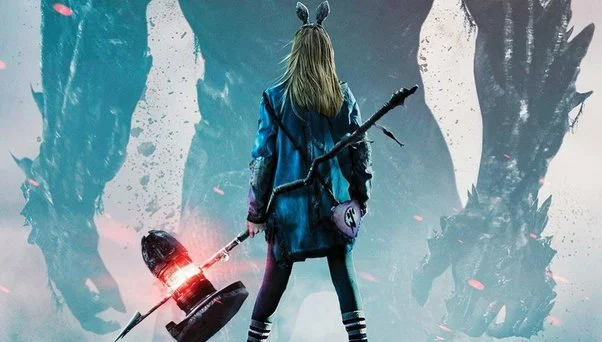
The townsfolk scoff, dismissing her as a delusional child. Yet, Barbara stands guard, a solitary sentinel against a silent, monstrous tide. Theirs is a world teetering on the edge of disbelief, where whispers of giants mingle with the clatter of everyday life.
Is she a valiant protector or a victim of a troubled mind? The film masterfully walks this tightrope, leaving the audience to grapple with the ambiguity. As the narrative unfolds, the line between reality and delusion blurs, mirroring Barbara’s internal struggle.
The film’s emotional core lies not in grand displays of heroism, but in the quiet moments of resilience. We see the toll her burden takes, the isolation, the relentless bullying. Yet, within her flickers a fierce determination to shield her town, even from those who mock her.
“I Kill Giants” is more than a monster movie. It’s a poignant exploration of grief, the power of imagination, and the courage it takes to face the shadows, even when you’re the only one who believes they’re real. It’s a film that lingers, leaving you questioning the very fabric of reality and the strength of the human spirit in the face of the unacknowledged.
Hachikō the Dog
In the bustling heart of Tokyo, amidst the throngs of humanity, an unlikely friendship blossoms. Hachiko, an Akita pup with eyes that hold the wisdom of ages, finds himself abandoned, adrift in a sea of indifference. Yet, fate intervenes, leading him to the doorstep of Professor Ueno, a man whose heart resonates with the echoes of loneliness.
Their bond forms quietly, a tapestry woven from shared walks, stolen moments of affection, and the unspoken language of companionship. Hachiko becomes Professor Ueno’s faithful companion, a furry shadow gracing his every step. Each morning, he sees his friend off at the train station, a silent promise hanging in the air.
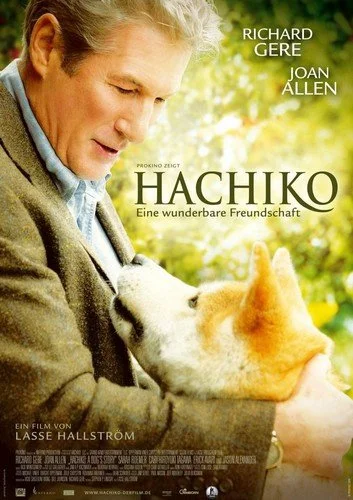
But life, like the seasons, is ever-changing. One day, the Professor doesn’t return. The familiar rhythm of their routine is shattered, leaving Hachiko waiting in vain. Yet, day after day, he returns to the station, a beacon of unwavering loyalty in the face of heartbreak.
Hachiko’s vigil becomes a testament to the enduring power of love, a love that transcends the boundaries of time and circumstance. This is not just a story of a dog’s devotion; it’s a profound meditation on the depths of love, the unwavering loyalty that binds us to those we cherish, and the enduring hope that flickers even in the face of loss.
